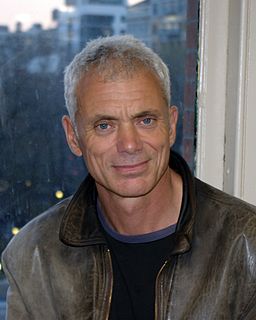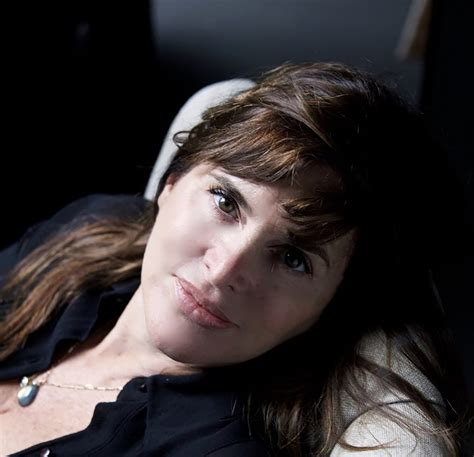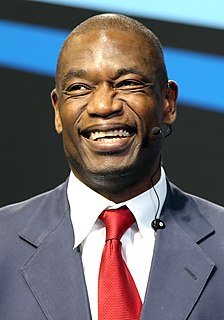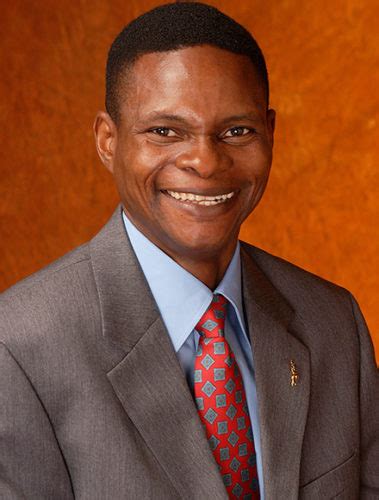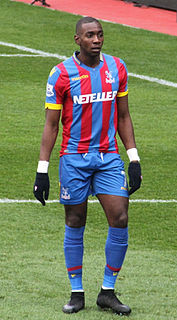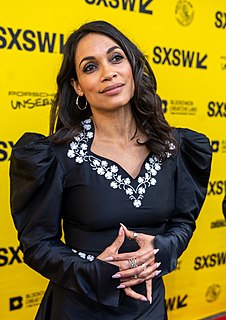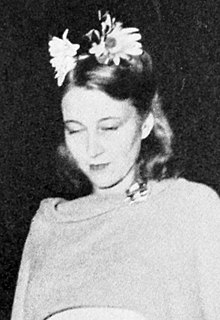Top 120 Congo Quotes & Sayings - Page 2
Explore popular Congo quotes.
Last updated on December 25, 2024.
We would be driving down the street in a place like Zaire, now the Democratic Republic of Congo, and started to see, my gosh, the only people that have shoes are men. Why does that woman have a baby in her belly and one on her back, and she's carrying a huge load of bananas? You start to ask these questions.
Sudan has been an experiment that resonated across Africa: if we, the largest country on the continent, reaching from the Sahara to the Congo, bridging religions, cultures and a multitude of ethnicities, were able to construct a prosperous and peaceful state from our diverse citizenry, so too could the rest of Africa.
The main mineral in your cellphone, coltan [a black metallic ore], comes from the Eastern Congo. Multinational corporations are there exploiting the very rich mineral resources of the region. A lot of them are backing militias which are fighting one other to gain control of the resources or a piece of the resources.
There is a structural difference between the way that Europe views Israel, and America views Israel. The European view is informed by the importance of colonialism in Europe's past. So for Europeans we are like Belgiums in the Congo, or the French in Alger, or the British in India. Strange interlopers in somebody else's land. But in fact, we [Israeli] have been here for 4,000 years. This is our ancestral homeland.
We can learn a great deal from whales. It is the same lesson we can learn from our close genetic relatives, the bonobo apes of the Congo. Here mothers have a great deal of authority, there is very little violence (with no signs of sexual violence against females), and their society is held together by sharing and caring rather than by fear and force.
What I really intend to achieve is to be that fly on the wall, and to try and observe as much as I can without affecting what I've seen. I want to get a sense that what I'm seeing in a place would have happened had I not be there. Were I to make myself an important presence, that would be lost. The danger of a certain other kind of reporting is that people give you what they think you are seeking. People know what you want. When I was traveling in Congo and Rwanda and people asked me what I wanted, I would say, "Nothing. I just want to be here." And that immediately disarmed them.
The world has done that already - possessed the Congo and pillaged her and dominated her and robbed her of agency and occupation. Love is something else, something rising and contagious and surprising. It isn't aware of itself. It isn't keeping track. It isn't something you sign for. It's endless and generous and enveloping. It's in the drums, in the voices, in the bodies of the wounded made suddenly whole, by the music, by each other, dancing.
As I searched the atlas for somewhere to run to, Hugh made a case for his old stomping grounds. His first suggestion was Beirut, where he went to nursery school. His family left there in the midsixties and moved to the Congo. After that, it was Ethiopia, and then Somalia, all fine places in his opinion. 'Let's save Africa and the Middle East for when I decide to quit living,' I said.
It is said that the Queen has come to love the Commonwealth, partly because it supplies her with regular cheering crowds of flag-waving picaninnies; and one can imagine that Blair, twice victor abroad but enmired at home, is similarly seduced by foreign politeness. They say he is shortly off to the Congo. No doubt the AK47s will fall silent, and the pangas will stop their hacking of human flesh, and the tribal warriors will all break out in Watermelon smiles to see the big white chief touch down in his big white British taxpayer-funded bird.
My last point about getting started as a writer: do something first, good or bad, successful or not, and write it up before approaching an editor. The best introduction to an editor is your own written work, published or not. I traveled across Siberia on my own money before ever approaching an editor; I wrote my first book, Siberian Dawn, without knowing a single editor, with no idea of how to get it published. I had to risk my life on the Congo before selling my first magazine story. If the rebel spirit dwells within you, you won't wait for an invitation, you'll invade and take no hostages.
And yet the world we live in-its divisions and conflicts, its widening gap between rich and poor, its seemingly inexplicable outbursts of violence-is shaped far less by what we celebrate and mythologize than by the painful events we try to forget. Leopold's Congo is but one of those silences of history.
When I travel around the globe, I try as hard as I can to represent the NBA and the game of basketball to the best of my abilities. I get to go around the world and not only share the game but also my philanthropic work. Building a hospital in the Congo is one of the proudest achievements of my life.
I've known rivers: I've known rivers ancient as the world and older than the flow of human blood in human veins. My soul has grown deep like the rivers. I bathed in the Euphrates when dawns were young. I built my hut near the Congo and it lulled me to sleep. I looked upon the Nile and raised the pyramids above it. I heard the singing of the Mississippi when Abe Lincoln went down to New Orleans, and I've seen its muddy bosom turn all golden in the sunset. I've known rivers: Ancient, dusky rivers. My soul has grown deep like the rivers.
Even in Haiti, I saw John Wayne movies. American cinema has always been the dominant cinema throughout the world, and people tend to forget that. People aren't just seeing these films in California or Florida. They're seeing them in Haiti, in Congo, in France, in Italy and in Asia. That is the power of Hollywood.
We [human beings] are two-legged omnivorous animals, and this means that we have many ecological niches, regarding the possible places where we can live. Therefore, we have to adapt to these different environments and we cannot predict, in a generic way, in which type of world we are going to live (cold as the North Pole or hot as Congo).
The first victim in journalism today is proximity. I know I've used that word a lot. Because of foreign budgets, newspapers have consolidated, and journalists now cover dozens of countries at a time. It is physically not possible for one person to understand and live the unique sets of experiences in all these places in honest and meaningful ways. Outlets used to send journalists to places like Congo for months at a time, and they were stationed there for months or years. There was a sense of immersive reporting, and that has been a casualty of the shift in news over the past years.
I created the Dikembe Mutombo Foundation back in 1997 for the purpose of going in and improving the living conditions of my people on the African continent, especially in the Democratic Republic of Congo where I came from. Our first mission was to go and build a new hospital. Our next mission was to build a school.
Congo has vast stands of biologically important forests as well as remote areas still waiting to be explored, yet we have very few botanists. I'm working to expand training for young students and inspire a new generation to make discoveries, spread the word about conservation, and increase protected areas throughout our country.
I am black; I am in total fusion with the world, in sympathetic affinity with the earth, losing my id in the heart of the cosmos -- and the white man, however intelligent he may be, is incapable of understanding Louis Armstrong or songs from the Congo. I am black, not because of a curse, but because my skin has been able to capture all the cosmic effluvia. I am truly a drop of sun under the earth.
We are not held accountable for how the economy ravages Congo. Governments aren't held accountable for foreign policies that they exercise there. There are no institutional structures to render justice. The press is very limited. There's very little transparency. You find a symmetry in certain basic human tendencies, and these tendencies are not always noble or beautiful. I think we have an instinct to turn away from that, to not acknowledge it, while it is something that's a part of us. There's a certain tragic and sad side to human nature that, in our quest for beauty, we ignore.
Helen Rosevere was a British medical missionary in the Congo years ago during an uprising. Her faith was strong and her trust was confident, yet she was raped and assaulted and treated brutally. Commenting later, she said, "I must ask myself a question as if it came directly from the Lord, 'Can you thank Me for trusting you with this experience even if I never tell you why?'" What a profound thought. God has trusted each of us with our own set of unfair circumstances and unexplained experiences to deal with. Can we still trust in Him even if He never tells us why?
I was not very strong growing up, and my uncle used to look at me, like, 'This kid is not growing up, he is growing tall but he can be broken like a banana.' The banana in Congo is called 'Dikembe.' So my uncle start calling me, 'Dikembe, Dikembe, look at you Dikembe, you cannot even stand up.' It took a long time for me to walk.
I created the Dikembe Mutombo Foundation back in 1997 for the purpose of going in and improving the living conditions of my people on the African continent, especially in the Democratic Republic of Congo where I came from. Out first mission was to go and build a new hospital. Our next mission was to build a school.
If I had not played basketball and made the millions of dollars that I had made, I would never have been able to build a hospital in Congo. It started in 1997, and 10 years later I was able to unveil the Biamba Marie Mutombo Hospital, named after my mother, in my hometown outside of Kinshasa. It was such a blessing.
Had the Holocaust happened in Tahiti or the Congo, as it has; had it happened in South America, as it has; had it happened in the West Indies, as it has - you must remember that within fifty years of Columbus's arrival, only the bones remained of the people called the Arawaks, with one or two of them in Spain as specimens. Had the Holocaust committed under the Nazis happened somewhere else, we wouldn't be talking about it the way we talk about it.
I wanted to tell the story of these women and the war in the Congo and I couldn't find anything about them in the newspapers or in the library, so I felt I had to get on a plane and go to Africa and find the story myself. I felt there was a complete absence in the media of their narrative. It's very different now, but when I went in 2004 that was definitely the case.
The reason we do activism is because, maybe you haven't been raped or abused, but there are millions of people who can't say the same, and when you hear their stories you may be a little bit compelled. And it doesn't have to be dark. In the Congo, there are women who've been raped and re-raped, and they're so powerful, and they can carry trees on their heads, and they're dancing!
Forests and trees make significant direct contributions to the nutrition of poor households ... [as] rural communities in Central Africa obtained a critical portion of protein and fat in their diets through hunting wildlife from in and around forests. The five to six million tonnes of bushmeat eaten yearly in the Congo Basin is roughly equal to the total amount of beef produced annually in Brazil - without the accompanying need to clear huge swathes of forest for cattle.
In abstract mathematics or abstract art, the purpose is to describe inner states of our mind, and to explore the limits of our own imagination and our capacity for creativity. While this has some applications in the world, I think it leads to a distance from the world. Going to Congo was for me an act of seeking proximity, of breaking that distance. With abstraction, which is brilliant and vain, you divorce yourself from any kind of proximity to other people.


